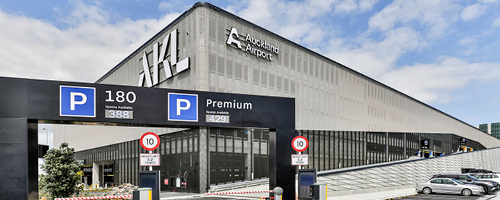The International Air Transport Association (IATA) has expressed strong criticism of New Zealand’s Economic Regulatory Framework for Airports, following the Commerce Commission’s review of Auckland Airport’s Price Setting Event 4. IATA argues that the current regulatory approach is inadequate and allows Auckland Airport, as the sole monopoly provider, to set excessively high aeronautical charges.
According to IATA, the Commerce Commission’s conclusion that Auckland Airport’s charges are excessive, ranging from NZD 150 million to NZD 226 million, is hardly surprising. While the airport has responded by lowering charges for the next two years, IATA contends that the entire process exposes fundamental flaws within the current framework. Dr Xie Xingquan, IATA’s Regional Vice President for North Asia and Asia Pacific (ad interim), stated, “The economic regulatory framework in its current form is not fit-for-purpose and change is urgently needed.”
One of IATA’s primary concerns is the light-touch regulatory approach that allows Auckland Airport to independently set aeronautical pricing without sufficient oversight. As the only monopoly provider, the airport can inflate charges at the outset of the regulatory process and later choose whether to adjust them after the regulator’s findings, or simply ignore the report altogether. This lack of enforceable regulation, according to IATA, enables Auckland Airport to manipulate the system to its advantage.
Additionally, IATA criticised the exclusion of non-aeronautical activities from the regulatory oversight of the Commerce Commission. These activities, which typically generate significantly higher returns, remain unchecked, further skewing the economic landscape in the airport’s favour.
There are also concerns about the airport’s significant infrastructure investments, with airlines raising issues about the size, phasing, cost allocation, and affordability of these projects. IATA believes that some of these expenses could have been avoided if infrastructure planning and investments had been managed more efficiently in the past.
Dr Xie highlighted the broader economic impact, noting that aviation supports 5.6% of New Zealand’s GDP and 177,000 jobs. He emphasised that delivering cost-effective, demand-driven infrastructure is essential for the continued growth of the aviation sector. However, he criticised the current consultation process with Auckland Airport as ineffective and potentially detrimental to passengers’ interests. “The current consultation process with Auckland Airport is ineffective and may not deliver outcomes that are in the best interests of passengers. This needs to change,” said Xie.
IATA’s critique underscores a pressing need for reform to ensure that airport pricing practices are transparent, fair, and aligned with the broader interests of the aviation industry and the travelling public.



